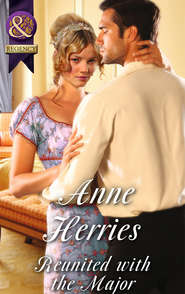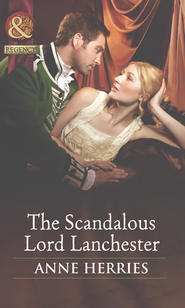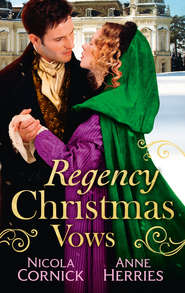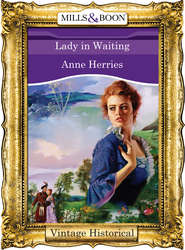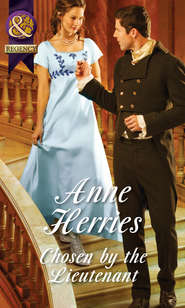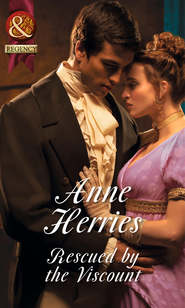По всем вопросам обращайтесь на: info@litportal.ru
(©) 2003-2024.
✖
Ransom Bride
Настройки чтения
Размер шрифта
Высота строк
Поля
‘What colour hair did your son have? Were there any distinguishing features?’
Charles thought for a moment. ‘It distresses me to say it, but I can no longer see Richard’s face. His hair was fair—darker than yours, but of a similar texture. His eyes were blue…’ He frowned. ‘I might be describing a thousand men. I fear I have given you but poor help, sir. But loath as I am to admit it, I spent little time with my son when he was young. He was there and I took my good fortune for granted. It was only when I lost him that I understood what he had meant to me.’ His voice broke with emotion.
‘Yes, it is often so, I believe,’ Lorenzo said. He was not certain why he felt affected by Lord Mountfitchet’s story, for he was not a sentimental man. ‘We all take what we have for granted. My father died some months ago and I miss him sorely. I was away much of the time and afterwards regretted that I did not show more gratitude towards him.’
‘I was sorry to learn of Antonio’s death. We met only twice when he visited England, but we were drawn to each other.’ Charles hesitated, then said, ‘I did not realise at the time that he had a son.’
‘I was adopted some years ago,’ Lorenzo said, revealing more than was his wont. ‘My father was a good and generous man. I owe him much. He was not a wealthy man, so it was given to me to improve our fortunes and I was happy that I was able to see him end his days in comfort.’
‘He was fortunate to have you. I have tried to preserve my estate for Richard, but it would have been a relief to me to have him with me. I fear I grow old and the days seem lonely.’ His eyes were clouded with grief, the years of futile searching carved deep into his face.
‘The man I would have you meet has blue eyes,’ Lorenzo said with a frown. ‘As for his hair—it has turned grey from the suffering he endured at the hands of his captors. I must warn you that this man has terrible scars on his arms, back and legs.’
‘The poor devil,’ Charles said and his hands shook as he sipped his wine. He took a deep breath, trying to control the images in his mind—images that had haunted his dreams for years of his son being beaten and tortured. ‘This wine is excellent.’ He made an effort to banish his nightmares. ‘A new one, I think? You have not sent me this before?’
‘It came from a vineyard in Cyprus,’ Lorenzo told him. ‘I have been trying it before adding it to the shipment.’ He refilled his guest’s cup. ‘I shall speak to the man I mentioned myself, ask him if he will see you.’ He saw the surprise in the other’s eyes. ‘He is not my prisoner. He was saved from the wreck of a galley and we have nursed him through his illness. Now that he is well, he will be given a choice. He may work for me as a free man or return to his homeland. If he asks me for help to find his family, I shall give it.’
‘Do you ask a ransom for him?’
‘If his family can afford to pay. I am a man of business, sir.’
‘And if he has no family?’
‘Then he is free to go where he will—or stay with me.’ Lorenzo’s eyes held a glint of ice. He lifted his head defiantly. ‘He has his life returned to him. What more would you have of me?’
‘Nothing you have not given,’ Charles replied. ‘For myself, I would be glad to pay for the return of my son.’
‘I wish that I might give you more hope,’ Lorenzo said. ‘But let us speak of other things. You have an idea of settling on Cyprus, I believe?’
‘I have thoughts of my own vineyard.’
‘Then I may be of more help to you there,’ Lorenzo said. ‘Come to dinner tomorrow evening. Bring your sister and niece to dine. I may have more news for you by then.’
‘Thank you. I shall look forward to it.’
Charles was thoughtful as he took his leave. He believed Lorenzo Santorini an honest man. His manner was somewhat reserved and at times his eyes were cold. He was clearly unsentimental about his business, a man of purpose. Some might think him harsh to take ransom money for men he rescued from slavery, but Charles found no fault in his seeking some profit from what he did. There were others who would simply have left the galley slave to die or even have sent him back to the markets to be sold again.
No doubt it was Santorini’s keen intelligence and lack of sentiment that had made him wealthy. Yes, perhaps he was a little harsh in matters of business, but who knew what had caused him to be that way? He sensed some mystery in the man’s past, but it was not his affair. Santorini would deal fairly with him and he could ask for no more.
His thoughts turned to the man he had been told of—a man who might be English with blue eyes. Could he possibly be Richard? Charles felt a flicker of hope. Yet it was ridiculous to allow himself to hope. There must be many blue-eyed Englishmen who had been lost at sea and taken as galley slaves, and not only by the Corsairs. Some served in Spanish galleys and there was little to choose between their masters, for they were beaten and tortured, made to work until they collapsed at the oar and were tossed into the sea to die. The Spanish hated the heretic English and it was often said that they were crueller than the Corsairs to those they took in battle.
Charles closed his eyes, trying to shut out the pictures that crowded into his mind. God forgive him, he could almost wish his son dead rather than know that he had suffered such a terrible fate.
‘But that is wicked!’ Kathryn exclaimed as Charles spoke of the ransom he would pay if the man he had been told of should by some extreme chance be his son. ‘Why, this Lorenzo Santorini is little better than those evil men whose business is to trade in slaves.’
‘No, Kathryn,’ he said. ‘You do not understand, my dear. I would be willing to pay any sum for Richard’s return and should be grateful to the man who found him for me.’
‘But a decent man would not ask for money, Uncle Charles.’ She was outraged, her eyes scornful of this man she had yet to meet.
‘Hush, Kathryn,’ he chided. ‘We must not judge him. He does much good, I think, and if he makes a profit by it…’Charles shrugged his shoulders. ‘I found him honest. He is a man I can do business with. You may feel it wrong to take money for restoring a man to his family, but others would have let the poor fellow die.’
‘Please, Charles,’ Lady Mary said with a little shudder, ‘I wish you would not say such things. You will give Kathryn nightmares.’
‘No, dear Aunt Mary,’ Kathryn said and smiled at her. ‘My nightmares have become a thing of the past since we began our journey. I do not know why, but my heart has become much lighter.’ It was as if she felt that she was going to meet Dickon, that she would find him at her journey’s end. In her dreams he seemed very close and he was no longer in pain or distress. She seemed to see him smiling at her, opening his arms to enfold her and kiss her.
‘Well, I am happy for it,’ Charles said with a smile. ‘But it would be too much to expect to find Richard so swiftly. It may be months or years—or perhaps never—but Signor Santorini has promised to do what he can. I pray you, Kathryn, do nothing to antagonise him this evening.’
‘Of course I shall not, Uncle Charles,’ Kathryn said. ‘If you believe he can help us, then I shall do nothing to make him change his mind. I may think him unprincipled and wrong, but I shall not say it.’
He smiled at her, nodding his satisfaction with her promise. It was time for them to leave, and the gondola was waiting at the steps outside their house to take them to Lorenzo Santorini’s palace.
Kathryn’s eyes widened as she saw it, for it was surely one of the most important and attractive of the many beautiful buildings built by the Grand Lagoon. This Signor Santorini must be very wealthy; if that were so, he did not need to ask for money from the families of the poor wretches he rescued from cruel masters.
Her antagonism was growing towards the man she had never met, her feelings of outrage at the obvious trappings of his great wealth building a picture in her mind so that, when the tall, golden-haired man came towards them, she did not at first imagine that he was Lorenzo Santorini. She had seldom seen a more attractive man, Kathryn thought, and as she looked into his deep blue eyes her breath caught and she felt very strange. She had only ever known one person with eyes that colour and so strong was the emotion that gripped her then that she almost fainted. Indeed, she swayed and put out her hand to steady herself, finding her arm gripped by a firm hand.
‘Are you ill, Madonna?’
His voice was so deep and husky; yet she heard only the echoes of the sea against a rocky shore on a windswept night, her mind whirling in confusion. For a moment she was there again, looking down as the Corsairs carried her beloved Dickon away with them, her feeling of terror so strong that she almost fainted.
‘Kathryn? Is something wrong, my dear?’
Lady Mary’s voice brought her back from the edge of the precipice and her head cleared. She looked at the man, who still held her arm in a vicelike grip, her eyes suddenly dark with revulsion as she dismissed the foolish notion that had come to her. How could she have thought even for one moment that this man was her beloved Dickon? His face was deeply tanned, with sculptured cheekbones and lines about his eyes. Richard Mountfitchet would be no more than five and twenty; this man must be some years older, of course, the set of his mouth harsh and unforgiving, so different from the easy smile that she had been wont to see on Dickon’s lips.
Why, from what she had heard of him, he was little better than the evil men who had abducted her dearest friend!
She moved her arm and his grip relaxed, releasing her as her head went up proudly, daring him to touch her again. ‘I am all right, Aunt Mary,’ she said, smiling at the woman who was clearly concerned for her. ‘It was just a moment of faintness. Perhaps the change from the bright sunlight to darkness?’
It was a weak excuse, of course, for it was not truly dark in the palace, which was a place of colour and sunshine from the many windows high above that gave the grand hall a churchlike feel.
‘It has been very warm today,’ Lorenzo said, his eyes narrowing as he sensed her hostility. What ailed her—and why had she looked at him so oddly for a moment? ‘And I believe it may be cool in here. Please come through to my private chambers, ladies. I believe you may be more comfortable there.’
Lorenzo led the way to another, smaller chamber, which was lavishly appointed with beautiful tiled walls and floors, the colours rich and vibrant. It was furnished with the most exquisite things that Kathryn had ever seen, some of them with a distinctly Byzantine look to them. For surely those silken couches belonged more properly in the harem of an eastern potentate?
‘I have never seen such a lovely room,’ Lady Mary declared, echoing the thoughts Kathryn would not for pride’s sake utter. ‘Where did you find all these lovely things, Signor Santorini?’
‘Some of them were given me in gratitude for saving the life of a precious son,’ Lorenzo told her. His eyes were on Kathryn as he spoke, a mocking gleam deep in their mysterious depths. ‘It was in Granada and the boy was a Moor, the son of a merchant prince—a man whose wealth would make me seem a pauper by comparison.’
‘How interesting,’ Lady Mary said. ‘Pray do tell us more, sir.’
‘It was nothing,’ Lorenzo told her with a fleeting smile, his eyes becoming colder than deep water ice as he saw that Kathryn’s mouth had curled in scorn. ‘I happened to be in the right place at the right time—and the grateful father showered me with gifts of all kinds, some of which you see here.’
‘You must also be a very wealthy man,’ Kathryn said and her tone made it sound like the worst of insults. ‘Might it not have been nobler to refuse the gifts and be satisfied with the pleasure of saving a life?’ Her eyes flashed with green fire, challenging him so clearly that the air seemed to crackle between them.
‘No, no, Kathryn,’ Charles reminded her uneasily. He was afraid she would antagonise the Venetian, and Santorini was his best hope of ever finding his son. Indeed, since they had met, he had been filled with new hope. ‘You must not say such things, my dear. It is not for you to judge these matters.’
‘Kathryn’s fault lies in her ignorance,’ Lorenzo said easily and she saw that there was an amused curl to his mouth. His eyes glinted with ice and she felt her heart catch, for something about him drew her despite herself. ‘To have refused the gifts from such a man after rendering him a significant service would have been to offer him a deadly insult. Had I been unwise enough to do so, he would have thought that I believed he owed me more and would simply have increased the size of his gift—even to beggaring himself, if I demanded it. But of course, your niece could not know anything of the customs, or indeed the pride, that prevails amongst such people.’
He was looking at her as if she were a foolish child!






